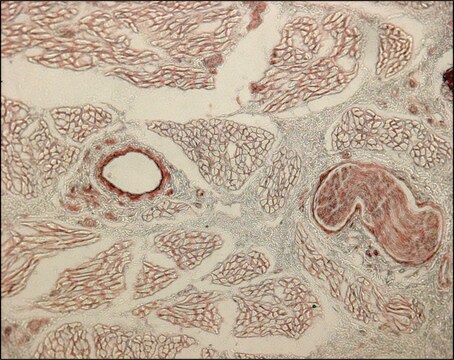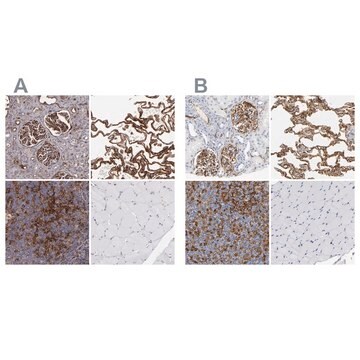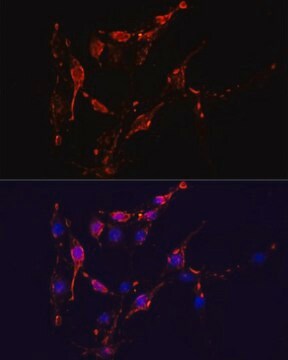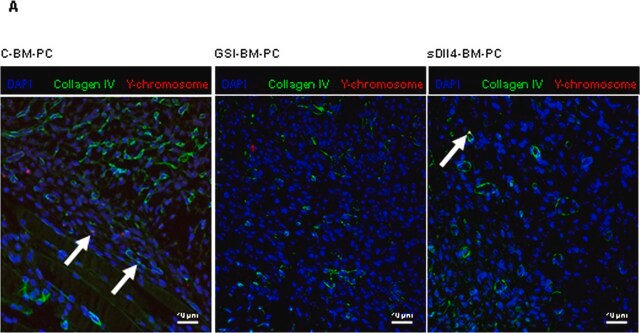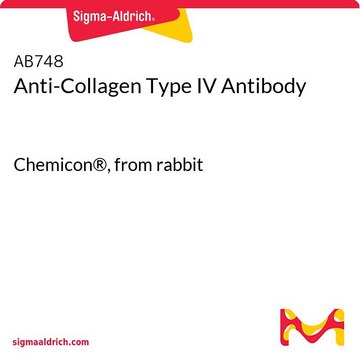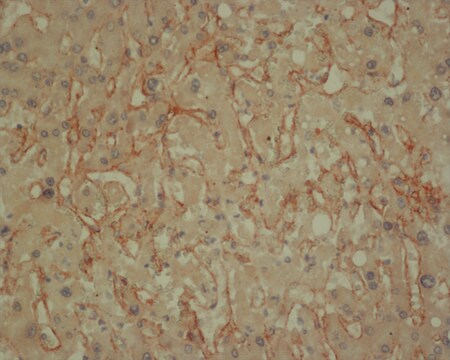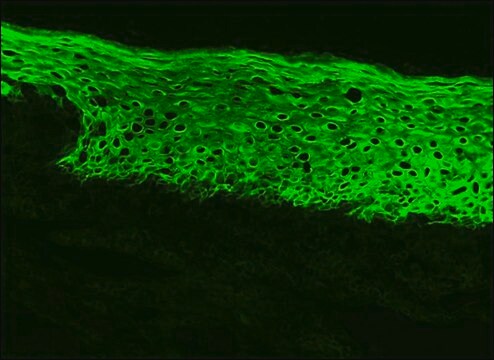MAB1379
Anti-CD54 Antibody, extracellular, clone 84H10
clone 84H10, Chemicon®, from mouse
Synonym(s):
ICAM-1
About This Item
Recommended Products
biological source
mouse
Quality Level
antibody form
affinity purified immunoglobulin
antibody product type
primary antibodies
clone
84H10, monoclonal
species reactivity
human
should not react with
canine
manufacturer/tradename
Chemicon®
technique(s)
flow cytometry: suitable
immunohistochemistry: suitable
immunoprecipitation (IP): suitable
isotype
IgG1
suitability
not suitable for immunohistochemistry (Paraffin)
NCBI accession no.
UniProt accession no.
shipped in
wet ice
target post-translational modification
unmodified
Gene Information
human ... ICAM1(3383)
General description
Specificity
Immunogen
Application
Immunohistochemistry on frozen tissue sections: 1:20-1:50. Does not work on paraffin embedded tissue sections.
Immunoprecipitation: 5 μg/ 10e7 cells
Adhesion Blocking; blocks ICAM-1 mediated adhesion to LFA-1.
Optimal working dilutions must be determined by end user.
Cell Structure
Adhesion (CAMs)
Physical form
Storage and Stability
Other Notes
Legal Information
Disclaimer
Not finding the right product?
Try our Product Selector Tool.
Storage Class Code
12 - Non Combustible Liquids
WGK
WGK 2
Flash Point(F)
Not applicable
Flash Point(C)
Not applicable
Certificates of Analysis (COA)
Search for Certificates of Analysis (COA) by entering the products Lot/Batch Number. Lot and Batch Numbers can be found on a product’s label following the words ‘Lot’ or ‘Batch’.
Already Own This Product?
Find documentation for the products that you have recently purchased in the Document Library.
Our team of scientists has experience in all areas of research including Life Science, Material Science, Chemical Synthesis, Chromatography, Analytical and many others.
Contact Technical Service